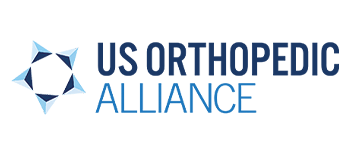
23 Jul Understanding the Implications of the Globus/NuVasive Merger: A Perspective from USOA
In the ever-evolving healthcare landscape, staying informed about industry changes that could impact our practices is crucial. One such change is the proposed $3.1 billion acquisition of NuVasive by Globus Medical, a merger that could potentially reshape the spinal-device market. This development has sparked conversations among surgeons, including Dr. Paul Birinyi, an independently employed neurosurgeon affiliated with the U.S. Orthopedic Alliance (USOA).
As reported by The Capitol Forum in a July 7 article, mergers can accelerate a market trend resulting in fewer choices of spinal devices and operating techniques. Hospitals seeking discounts on supplies and equipment are increasingly entering into contracts and arrangements with suppliers that can restrict options for surgeons by making it harder to use rivals’ products. The combination of Globus and NuVasive, which would create the world’s second-largest spinal-equipment manufacturer, could potentially exacerbate this issue.
Dr. Birinyi voiced concerns about the impact of market consolidation, suggesting it could result in fewer choices for surgeons and a loss of innovation. He compared the current consolidation in the spinal-equipment business to how the Big Three automakers came to dominate the U.S. car market for decades. He was quoted in the article, saying, noted, “All three of them are looking at one another and trying not to go too far ahead on technology because you don’t want to roll out all of your novel designs all at once, so you have nothing for the next year. They are just trying to outdo the two other competitors instead of providing the best product that they can.”
Dr. Birinyi also highlighted the merger’s potential impact on the competitive context of how hospitals have increasingly established preferred or exclusive contracts with large instrument providers. This trend reflects efforts by the federal Centers for Medicare & Medicaid Services to hold down costs for national healthcare programs. He explained, “You have CMS reducing reimbursements, and then inflation increasing the cost of acquisition of products and staff. So, it is more expensive to run a hospital, and you are making less. As a surgeon, they reduce what I get paid, and it costs me more to do the work.”
He further added, “All I can do and all the hospital can do is deal in volume or reduce the overhead cost.”
These insights from Dr. Birinyi underscore the importance of the impact of cost to our practices and the broader healthcare landscape. As we continue to navigate these changes, staying informed and proactive in our approach to providing the best care for our patients is crucial.
U.S. Orthopedic Alliance (USOA) is here to support you. If you’re a practice seeking guidance on how these changes may impact your operations, we invite you to contact us. We offer comprehensive discovery meetings and practice evaluations to help you understand the implications of these changes and provide tailored strategies to ensure your practice remains compliant and efficient.
Don’t navigate these changes alone. Contact us today to schedule your discovery meeting or practice evaluation with a member of our team. Visit our Getting Started page to learn more about how we can assist you. We look forward to partnering with you during these changing times.



